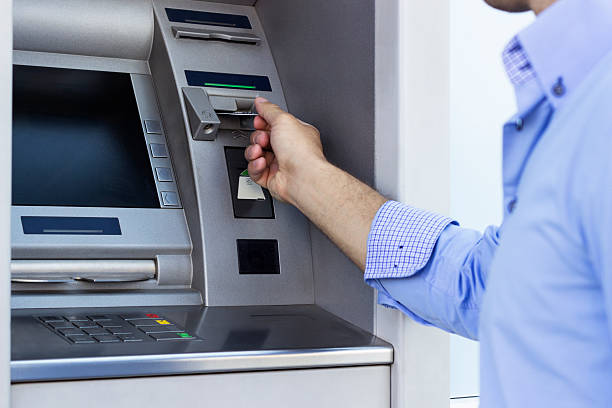
Offshore banking is frequently linked to a high degree of financial expertise and, occasionally, deceit. But in actuality, it takes just a few hours of labour for the typical person to open a bank account. For an offshore account, you’ll need to undertake some study to learn the specifics applicable to your circumstance because each offshore bank and foreign jurisdiction has its own rules. Here is a general outline of what to anticipate if you want to open an offshore bank account.
What Is Offshore Banking?
Financiers that operate outside of their native nation do so in another region of the world. Therefore, the phrase “offshore banking” is typically referring to global banks, businesses, and investments.
You should be aware that not all offshore accounts operate in exactly the same manner across all countries. For this reason, you should think carefully before creating your first account. Your chances of being content with the account for a very long time will increase as a result of the information you gather.
The primary reason why many banking and financial services provided by institutions in offshore environments differ from domestic services offered locally is that the rules of these countries provide a greater usage of services with fewer restrictions.
Read: How and Where to Get Documents Notarized
Offshore banks operate in accordance with legislation that has been particularly specified for each country. Every financial organization works under a Banking License and a particular state or regulatory body controls it. It must adhere to international banking norms and laws in order to operate as a financial institution and continue doing business with correspondent banks.
An offshore bank functions just like a conventional bank does. A person or corporation can create an offshore account with a foreign bank outside of their home country and have access to the same services, including deposits, payments, withdrawals, and internet transactions.
How Do You Open an Offshore Bank Account?
a) Personal bank account
Contrary to popular belief, opening an offshore bank account is easier than it appears. In spite of all the bad connotations, an onshore domestic bank is very comparable to an offshore bank account.
The requirements
In spite of all the bad connotations, an onshore domestic bank is very comparable to an offshore bank account.
- Passport copy
- Evidence of address (utility bill)
- Professional Reference
- Funds Verification
Depending on the jurisdiction, there may be additional conditions such as:
- Your Bank’s letter,
- Business Plan
- CV
Read: Frozen Account; What to Do After your Business Account is Frozen?
b) Requirements for Corporate Accounts
While each bank has its own rules for opening accounts, there are several that apply to all banks. The following are standard prerequisites for corporate accounts:

- Memorandum & Articles of Association/By-Laws, Certificate of Incorporation, and other corporate papers in their original or certified copies, as issued by the proper regulatory body.
- If the corporation has been in existence for more than a year, a Certificate of Good Standing.
- A letter of recommendation from a bank for each signatory References must be written on the referring bank’s letterhead and should just briefly describe the nature and duration of the partnership. The majority of banks will have proprietary, approved formats.
- One professional recommendation letter, such as one from a lawyer, accountant, or business reference.
- Authentic passport copies with an apostille for each director, beneficial owner, and authorized signatory on the account.
- A recent utility bill, credit card statement, mortgage statement, or local government tax bill serves as proof of address.
- The majority of banks need a business plan that includes an executive summary.
Depositing Money into an Offshore Bank Account
The most frequent method of electronically funding offshore bank accounts is through global wire transfers. Sadly, the mechanisms that make free electronic transfers popular in domestic banking usually aren’t possible to move money worldwide.
Although sending a wire transfer is a straightforward process, virtually all banks charge a fee to send or receive money internationally. Banks have different rates for wire transfers, so be careful to shop around. Unfortunately, there aren’t many excellent options. Domestic cheques are frequently not honoured in foreign jurisdictions, and routine in-person deposits of money are rarely possible.
Currency Selection
In contrast to domestic accounts, offshore bank accounts let you choose the currency in which you want to keep your money. This is a characteristic of an offshore account that may be quite advantageous, particularly if one’s home currency is unreliable or predicted to fall.
Read: Why Each Business Needs an Audit Service
Even if it could be a desirable feature, it’s critical to comprehend the effects of maintaining your account in several currencies. As an illustration, keeping money in particular currencies may make some extra interest on your savings but may also subject you to international tax obligations. Additionally, you might have to switch currencies in order to make deposits and withdrawals. Depending on the fee schedule and available exchange rates, this might be a considerable charge.
Process of Withdrawals
To make using their services as convenient as possible, offshore banks provide a range of withdrawal options. You may quickly access your money anywhere on the globe using a debit card.

The card’s use costs might pile up, so be sure you are aware of them. Larger cash withdrawals made all at once could reduce these expenses. Cheques are available from several banks abroad. However, this approach is not preferable, mainly because offshore accounts frequently call for confidentiality. Cheques from overseas accounts may be unacceptable locally, which might further cause issues.
Using two accounts, one offshore and one domestic, maybe the wisest course of action. In this manner, bigger offshore monies may be moved by electronic wire transfers to a local account. Additionally, to give the ease of nearby financial services, this strategy gives more privacy and security.
Do Rich People Bank Offshore to Evade Paying Taxes?
It’s understandable that this topic keeps coming up given the bad reputation that offshore banks have.
In the past, people could avoid paying taxes by keeping their money in offshore banks. There were several methods to create an account and conceal it from tax officials. Today, however, it is almost hard to hide money from governments due to new reporting regulations and increased levels of open communication across countries.
Related Articles you Might be Interested in:
100 Best Offshore Banks for Opening Accounts Online




